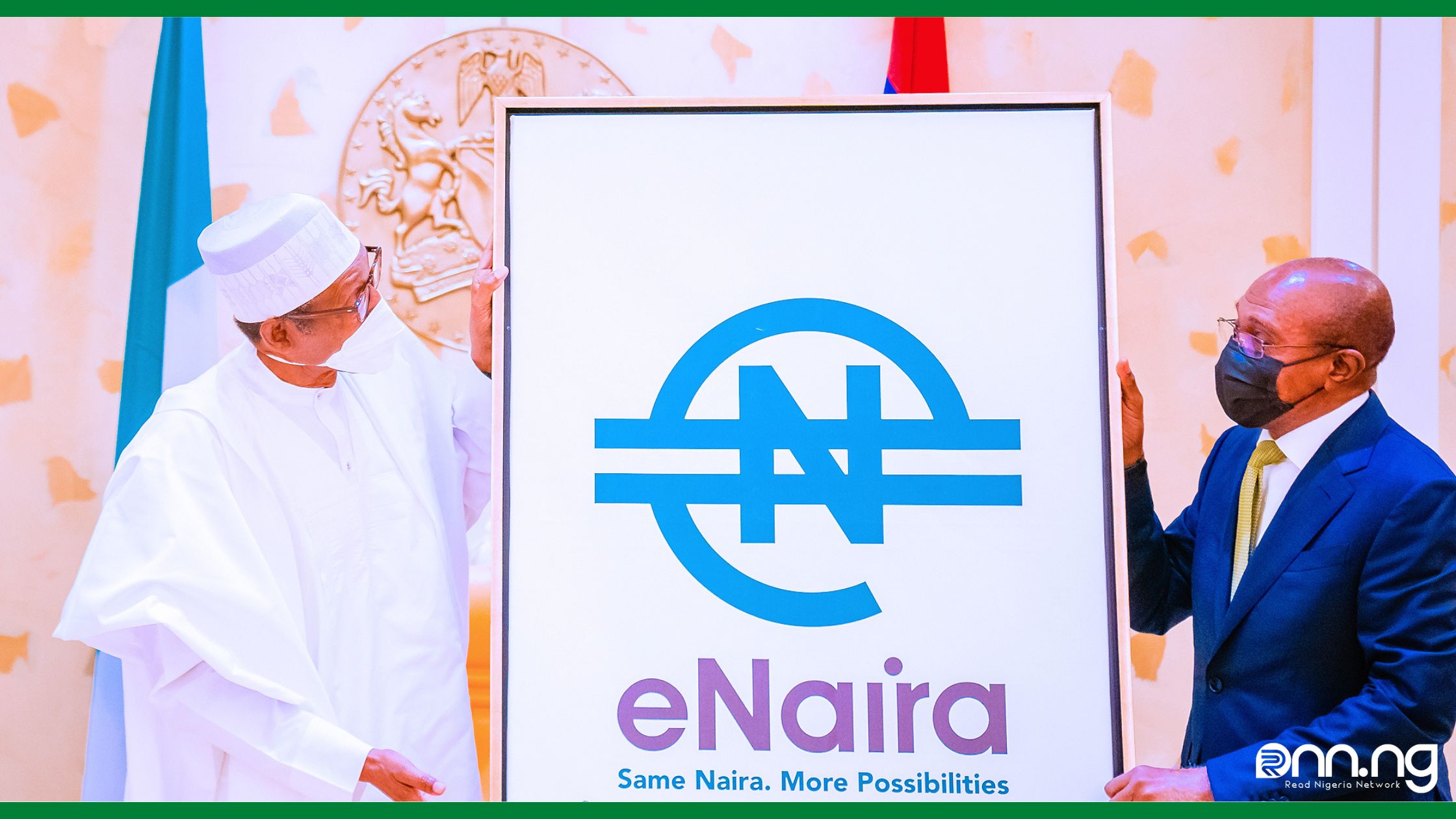Business News
eNaira records 700,000 transactions worth N8 billion – Emefiele
Godwin Emefiele, the governor of the Central Bank of Nigeria, reports that since the eNaira’s launch on October 25, 2021, there have…

- eNaira records 700,000 transactions worth N8 billion – Emefiele
- CBN’s deputy governor for economic policy
Godwin Emefiele, the governor of the Central Bank of Nigeria, reports that since the eNaira’s launch on October 25, 2021, there have been 700,000 transactions totaling N8 billion.
Emefiele made this statement on Wednesday in Abuja at the 28th annual In-House Executive Seminar of the central bank, which had as its theme “Digitalization of Money and Monetary Policy in Nigeria.” Aisha Ahmad, the CBN’s Deputy Governor for Financial System Stability, served as his representative.
According to The News Agency of Nigeria, President Major General Muhammadu Buhari (ret.) inaugurated the eNaira, the CBN’s version of the Central Bank Digital Currency, on October 25, 2021.
Emefiele claims that the eNaira was created to increase the payment options available to Nigerians, promote digital financial inclusion, and offer the possibility of accelerating social and intergovernmental transfers, capital movement, and remittances.
He asserted that the success of the eNaira had been recognized on a global scale.
“Since its launch, a total of N8 billion, consisting of over 700,000 transactions has passed through the eNaira platform. As part of the CBN’s effort to further integrate and broaden the usage of the eNaira, it was assigned an Unstructured Supplementary Service Data (USSD) code, enabling payments by simply dialing *997# on a mobile phone.
“I am proud to announce to you today that the eNaira has been attracting accolades across the globe as a monumental success. It topped the charts on retail CBDCs projects globally, as of April (PwC, 2022) and several central banks across the globe have been requesting our success template on the eNaira,” he said.
He claimed that the eNaira’s history was one of bravery, perseverance, and a commitment to discovering new horizons and opportunities.
He continued by saying that the apex bank had made revolutionary strides in establishing a culture of “big data” and data analytics as tools for efficient policy-making as part of the modernization effort.
READ MORE: CBN Marks One Year Anniversary of eNaira Successes Record
The CBN Data Architecture Project (CeDAP), code-named “Project OXYGEN,” was commissioned as a result, he claimed, with the goal of creating a repository for various types of data from various sources. The CBN governor claimed that increasing financial inclusion in Nigeria has resulted in significant progress.
As all residents must be included in order to maximize the benefits of a digital economy, he continued, the inclusion rate, at 64.0%, retarded the digital transformation wheel.
“While cash-based transactions have declined significantly in the last decade, it is still the dominant means of payment, amidst a large informal sector.
“Nigeria boasts of one of the fastest growing FinTech ecosystems in Africa, with the industry projected to grow by 12 percent annually. But the technological space is still maturing, with limited market size, funding and venture capitalists, access to baseline technologies, and skills, as common features, ” he said.
CBN’s deputy governor for economic policy
Dr. Kingsley Obiora, the CBN’s deputy governor for economic policy, also spoke at the conference and said that it served as an annual forum for discussing current economic challenges.
According to Obiora, the goal was to present policy alternatives for the CBN’s management to consider.
“Through the past years, the seminar has lived up to its expectations by providing significant inputs towards improving management’s decisions.
“Our gathering here today should be seen as an important avenue to critically search for fresh solutions to emerging monetary and financial challenges confronting us today,” he said.
He asserts that the digitization of money has increased the CBN’s ability to influence monetary policy. He continued by saying that despite maintaining the CBN’s fundamental mission, it also had the ability to alter conventional banking and financial system architecture.
“The gains in the digitalization of money span across enhancing tax collection, social welfare transfers, and more importantly, provide benefits that would enhance the goal of cashless policy in Nigeria.
“Similarly, the digitalization of money is very important for the facilitation of remittances, financial inclusion, financial market deepening, and ultimately, economic growth,” he said.
According to him, the eNaira platform has received 927,000 downloads overall, 317,560 customer wallets have been activated, and 33 banks have been fully linked and are operational on the platform.
“N3.0 billion has been successfully minted; N2.10 billion has been issued to financial institutions; over 3,320 merchants have successfully registered on the eNaira platform across the country. Over 700,000 transactions amounting to about N8 billion have been recorded on the platform, and there are over 2.5 million daily visits to the eNaira website, ” he said.
READ MORE: How to buy and where to buy eNaira, the CBN stablecoin
Alhaji Muhammad Bello, the Minister of the Federal Capital Territory, applauded the CBN for the initiative to bring together experts and significant players to address current policy concerns aimed at enhancing the Nigerian economy in his goodwill message.
Bello also praised the CBN for being proactive in its timely introduction of the eNaira in a speech given by Mr. Agboola Dabiri, Secretary of the Economic Planning and Research Department, FCTA.
“The eNaira is now acclaimed as the first CBDC in Africa and one of the first retail CBDCs deployed in the world. It holds huge potential for the Nigerian economy in terms of increasing cross-border trade, improving financial inclusion, strengthening social interventions, and bolstering Nigeria’s monetary policy and payments system.
“On the fiscal front, maximizing the potential of digital currencies could be a panacea to the subsisting revenue challenge of government. It could be a tool for optimizing tax revenue collection and improving public expenditure management in Nigeria,” he said.
Source: punchng.com
